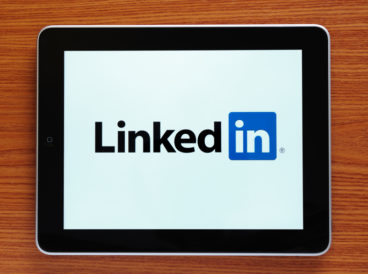Why Chief Digital Officers Now Reign Supreme

January 20, 2017 – As data becomes increasingly critical to corporate decision-making, the chief digital officer now reigns supreme. For recruiters, this has heightened the need for digital candidates with a much deeper grasp of the overall business environment and a greater repertoire of skills than ever before.
All About Data
“Chief digital officers have access to an extraordinary amount of consumer data, and data is what leads organizations to make informed decisions,” says Camille Fetter, president and managing partner of the Chicago-based search firm Talentfoot. “Many companies now have a chief marketing officer and a CDO, or they are requiring their CMO to have or develop a strong digital skill-set – a very different setup from even just five years ago,” From a recruiting standpoint, that means Camille has to look at CDOs who possess a broader range of skills. “The CDO has to quarterback a whole host of issues today,” she notes.
Camille, a digital recruiting specialist, points to social media as one of the key areas of responsibility for today’s chief digital officer. Social media, she says, is a first-of-its-kind, two-way conversation between brands and their customers. It has given companies a better understanding of how customers and potential customers regard their brand, products, and customer service. And in the end, that conversation is driving major transformation.
“Changes include new product rollouts, rebrands, and greater investments in customer service, to name a few,” Camille told me when we spoke recently. “All these initiatives have the goal of offering even more value to customers, fostering a deep level of brand trust, and driving revenue. Again, the professional at the helm of all of these changes is the CDO – the key player for innovative, progressive companies. So when we look at recruiting a chief digital officer we have to look at a much broader spectrum of responsibilities and experience because that is what the CEOs and boards of directors require today in their CDO.”
Talentfoot, which Camille founded in 2009, is a boutique firm specializing in finding leaders in digital marketing, media, and sales. Its clients range from Series B startups to Fortune 50 firms, nationwide. They include organizations like Discover Financial Services, WebMD, Walton Isaacson, and Kontera, among others. Previously, Camille led Midwest digital marketing and media recruiting for the Lucas Group. She also served as vice president of corporate relations on the executive board of the Chicago Interactive Marketing Association, among other jobs.
Highly Measurable
Talentfoot, for its part, is helping its clients find their way in the digital age. “Many of the companies we partner with from a recruiting standpoint are in the process of going through a digital transformation,” says Camille. “This could be moving from a brick and mortar platform to eCommerce, print to digital, or TV and radio to online and mobile.”
Indeed, digital is among the major factors affecting professional hiring today. Unlike most traditional channels, it is highly measurable. “Every dollar can be tracked and there is a specific return on investment target for each campaign – making digital campaigns highly transparent and therefore desirable,” says Camille. “On top of that, the average adult now spends 20 hours online each week – three times as much as 10 years ago. People no longer sit down in the morning to read the newspaper with a cup of coffee but rather are reading their news or securing other information through digital devices.”
Consumers are also spending considerably more time shopping online. And most do a lot of research before making their purchases. “That said, brands need to be visible and relevant to succeed,” Camille says. “In other words, brands need to market themselves in a way that makes people know, like, trust, and buy from them. Brands that fail to focus on digital channels – online, tablet, and mobile – will soon be left in the dust by competitors.”
Recruiters are seeking digital professionals who are committed to keeping up with ever-changing industry trends. The companies they represent want digital leaders with innovative, creative ideas. “They need people who will continue to push the envelope, take risks, and develop campaigns with impact,” says Camille. “So these are the types of candidates we are looking for: those who are not only knowledgeable but understand where the future is heading. Digital today is moving at warp speed, so finding just the right talent to address this fast-changing world is critically important.”
Finding Proven Digital Talent is Tough
These days, agencies also face the growing threat of AdTech/MarTech companies poaching their talent. In many cases, the interlopers can offer potential hires better work-life balance, no small thing, especially among millennials. Technology firms in particular tend to offer more aggressive compensation packages. “Advertising and marketing technology companies are seeking individuals who can sell their product to companies and agencies with a highly consultative approach,” says Camille. “These are sales professionals who can help marketers solve complex challenges with technology. Many of these companies are also seeking top developers, who are in high demand and extremely competitive to recruit.”
It is tough to find proven digital marketers, says Camille. In large part that’s because too few candidates can show that they have affected the bottom line for their previous employers. Companies want “proven marketers who can say, ‘I took site traffic from 10,000 per month to four million per month in 18 months,’ or ‘I drove online conversion rates from one percent to two percent, which drove $14 million in additional eCommerce sales,’” says Camille. “These types of professionals are far and few between.”
This, of course, is why executive recruiters still matter, and why search firms like Talentfoot are perpetually in demand. “That A-players are scarce means that now more than ever we need to reach out to a greater number of candidates, screen more intensively, and compare exhaustively to identify the top slate of candidates,” says Camille. “Just to arrive at the end result we have to, on average, evaluate 250 executives per search. In some cases we have seen this number range from 80 to 600 candidate evaluations, depending on the nature of the project. But even against those numbers there is such high demand, which has created a vacuum of talent.”
The AdTech area, meanwhile, is beginning to show some consolidation. “Technology is slowly replacing various roles in digital marketing,” Camille explains. “However, more and more corporations, meaning brands, are building in-house teams for these functions and therefore creating new roles.”
Convincing Someone to Leave Their Job
Looking ahead, Camille believes that one of the biggest challenges companies will face is identifying and attracting high-performing digital marketers. Top players are rare and most companies are ill-suited to identify them on their own. Camille and company often see evidence of that when meeting with clients for new assignments and realizing that the job descriptions are inaccurate. “After understanding their goals and objectives, it becomes clear that they need an entirely different skill-set than what they initially anticipated,” she says.
Many times, too, companies fail to see that they have under-performers in their ranks. “Therefore, they are unaware of how much revenue and growth they are missing out on by not having the right professional on board,” Camille says.
And because the best digital marketers can work from anywhere, clients find it tough to convince someone to leave a job he or she is happy in and come work for them. “With the best talent, companies are vying for them more than they’re vying for the companies,” says Camille. “It’s not easy competing with Google, Facebook, and Twitter, who all offer incredible benefits and opportunities for growth. To stay competitive, department leaders at smaller or lesser known brands need to become better at recruiting. And that’s an art form that takes time to learn.”
To attract the best digital marketing and media talent, Camille says, businesses will have to be open to providing greater flexibility and benefits to the people they bring in. “Most employees today, especially within digital, would probably prefer flexibility over higher compensation,” she says. “In addition, we are seeing organizations providing daily lunch, paid volunteer days, extensive paid maternity/paternity leave — up to six months! – travel stipends, sabbaticals, ski passes, and more. Many organizations are not ready to face the changing benefits landscape, but it’s imperative if they want to attract and retain the best talent.”
Undeniably, digital is revolutionizing how companies hire. But recruiters, too, have had to change how they do business. Reportedly, 10 percent of the population migrates toward a mobile device each year. For search consultants, that poses certain challenges.
“We identify talent on LinkedIn and, in some cases, coordinate schedules via email and send interview confirmations via text message,” says Camille. “We always ask our candidates what the most efficient form of communication is for them, and 90 percent of the time the answer is in the form of email or text message. While this is extremely convenient and quick, it poses a problem at times since executive search is such a hands-on business and requires us to speak with candidates. The fact that the digital world now includes so many younger professionals has created somewhat of a conundrum for us.”
Altered Landscape
“For example, the instinct among most millennials we’ve seen is to avoid the phone. They prefer to send an email or text, and this significantly impacts our ability to gauge critical pieces of information. However, when you are talking to someone directly, it’s far easier to sense their interest level, which is often only measured by the tone of their voice. I also think that vocal communication is the best way to gauge how an opportunity compares to other positions they may be applying for. Lastly, conversing by phone or in person is often the best way to handle time-sensitive opportunities.”
Mobile is altering the corporate landscape and significantly impacting the skill-sets that are most in demand. “Savvy consumer brands are hiring mobile experts in-house, while agencies are building out mobile practices,” says Camille. “I would also note that mobile marketing technology companies are popping up left and right and many of these companies are specializing in text message marketing, which some say is slowly replacing email marketing.”
It is now at the point that if a digital marketer lacks mobile experience, recruiters immediately question that individual’s overall skill-set. “We ask ourselves three questions,” says Camille. “One, are they employed by an outdated organization that is far removed from mobile consumption trends? Two, do they not realize the desktop has become the secondary screen? And three, has the individual become set in their ways and fearful of adopting mobile learning?”
The future is here, says Camille. Those who are slow to accept that and get on board are likely to be left behind. “We have partnered with some of the world’s largest financial institutions who believe the plastic credit card will no longer exist in five years,” she says. “Goodbye plastic, hello mobile wallet. If a consumer driven business is not ready to invest in mobile marketing, it will prove to be a very costly mistake. This starts and ends with the right people to drive these changes.”
Contributed by Stephen Sawicki, Managing Editor and Scott A. Scanlon, Editor-in-Chief — Hunt Scanlon Media











